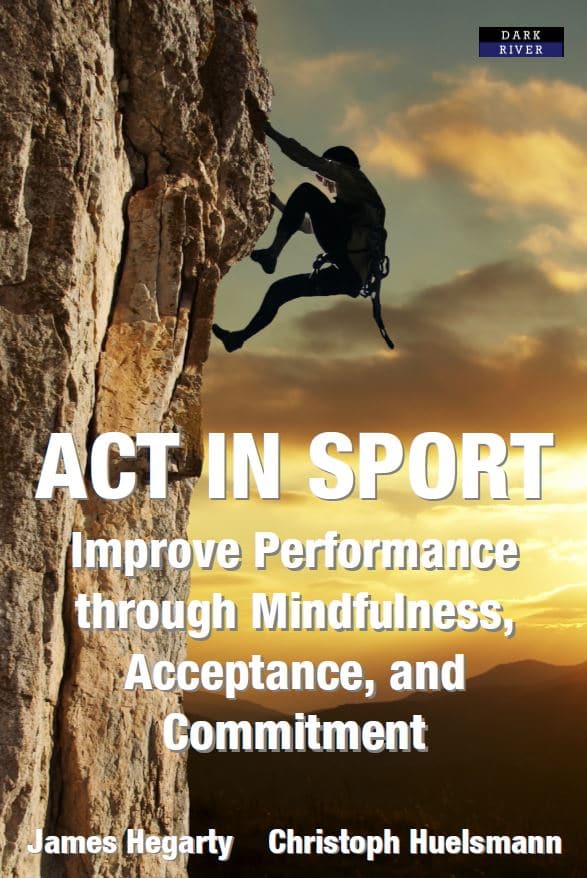An excerpt from:
ACT term: ‘Reason Giving’
Earlier in this book, we talked about fusion with your thoughts. The more you fuse with a particular thought, the more influence it might have on your behaviours. Take any of the examples previously given; an individual who is highly fused with the thought ‘It’s ok to take a day off training when it’s too cold outside’ is more likely to actually skip the training session than an individual who is mindful of her thinking and treats ‘thoughts as just thoughts’, rather than causes or truths.
A thought cannot control or cause your behaviour, but it can influence it.
Reasons can only become problematic when we fuse with them, and see them as representing reality, rather than just one way to look at ‘reality’. In our verbally dominated world, it has unfortunately become acceptable to give verbal reasons as explanations for behaviours. If someone says ‘I felt too anxious to do xyz so I stayed at home’, anxiety is often accepted as a cause for this behaviour rather than an emotion we chose to avoid. Thus, we have all learned to resort to verbal reason giving as a means to justify behaviours, even those that are not in line with our values and commitments.
It’s simple. None of the reasons given previously would physically prevent Sally from doing what she has set out to do. All of them are Sally’s mind engaging in reason giving.
What is a ‘real’ and ‘good enough’ reason then, you might ask? Here are two. ‘I have a broken leg, I cannot run’; ‘I twisted my ankle yesterday and it is still sore. I should take it easy today’.
While this might seem clear, maybe you are still not sure in what category some of the other ‘reasons’ your mind presents, fall into? Ask yourself this: if someone close to you was kidnapped, and your training action right now was the ransom – would you be able to do it? For example, could you train for one hour between 5 am and 6 am if this was required to get your loved one back? If you can, then any other rationale is ‘reason giving’. There are exceptions, of course, in that you might do activities that are detrimental to your health; for example, train with an injury that does damage. This is not what we are talking about here and will be covered in more detail in Chapter 8, where we discuss ‘Pain’ and other passengers.
Uncoupling
When we are fused with our thoughts, we can quickly align our feelings and behaviour with random statements our mind might be making. ‘It’s too cold to train today’ can become a feeling of dread and our corresponding (avoidance) behaviour can be to stay at home and watch the news instead. This might almost seem natural to us, especially when we are fused with other ideas like, ‘I need to feel motivated before I can train properly’. The truth is, however, that we can do a whole lot of things even if we don’t feel like it, or if our mind tells us we ‘can’t’. Want to try it out?
The following exercise will give you an experience of ‘uncoupling’ your behaviours from the content of your mind’s stories (your thoughts).
Mini exercise: Independence Training
Sit in a chair. Then think repeatedly ‘I cannot get up and walk around.’ Try to even feel this statement in your whole body, a sense that you cannot get up!
Next, while repeating this, and really trying to feel it, get up anyway and walk around. For half a minute.
Keep repeating to yourself the thought ‘I cannot walk around’ while doing this. Try to keep the body feelings you had noticed in your awareness – while you do this – as well.
Then become aware of the discrepancy between the thought ‘I cannot get up and walk around’ and the action you are engaged in.
We know you may get the point of this exercise without doing it, and you might be inclined to keep reading instead of actually trying the exercise. We suggest that you do it anyway. The point of this exercise is not your intellectual understanding of this concept, but for you to experience this, and to get familiar with not automatically doing what your mind tells you. In this exercise, you are consciously experiencing the discord. In doing this, you can engage in a different level of learning.

